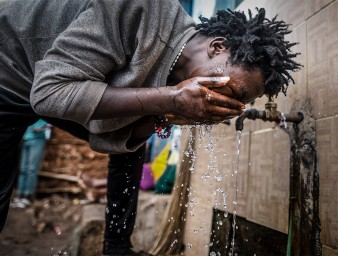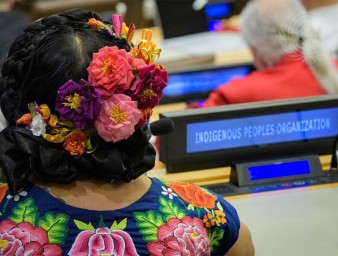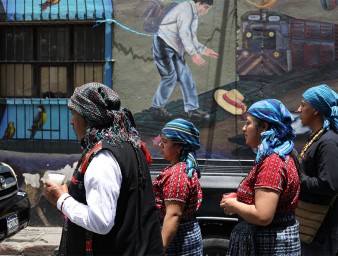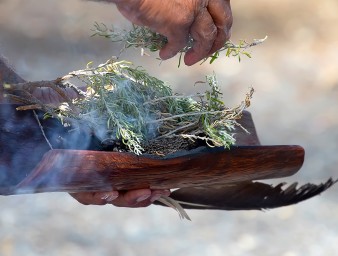Protecting indigenous peoples’ rights is a “collective fight”
03 November 2021
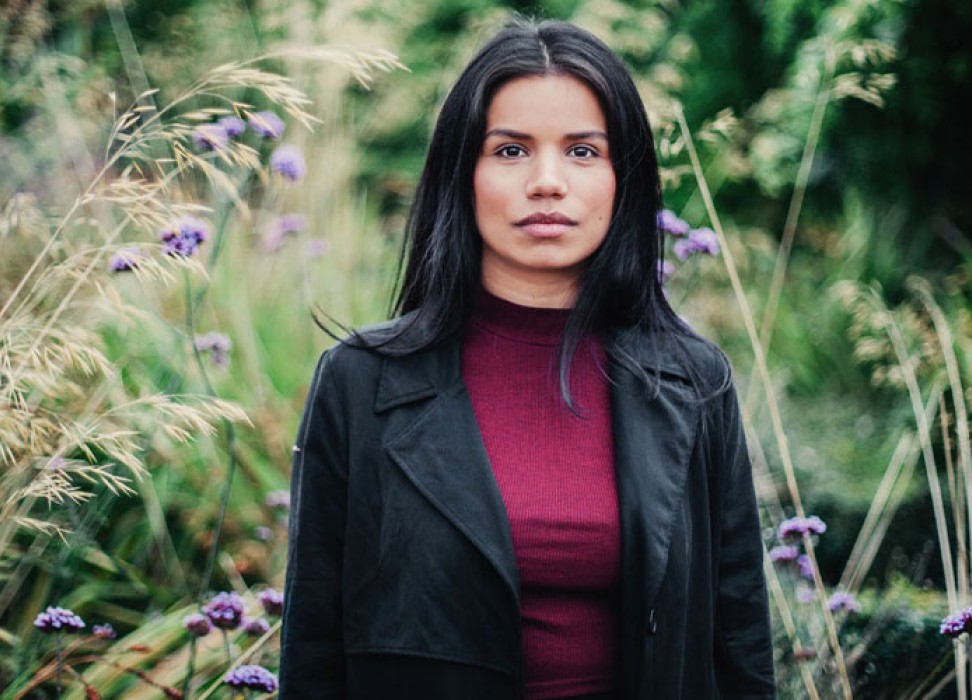
While world leaders are gathering this week at the 26th UN Climate Change Conference (COP26), there will be a young indigenous woman fighting for the protection and respect of indigenous lands the world over.
Nina Gualinga is a prominent young Swedish Ecuadorian environmental and indigenous peoples’ rights defender, whose work is dedicated to the protection of indigenous lands and homes from corporate interests.
Climate change and indigenous rights are clearly interconnected, she explains. “Many fossil fuel reserves are on indigenous land,” she says. “When big companies and industries extract fossil fuel, they violate indigenous rights by destroying our territories, and the fuels then contribute to climate change.”
Gualinga says that for any progress to be made on the protection of indigenous territories, “fossil fuels must be kept in the ground.”
Fighting for climate justice since childhood
When Gualinga was just seven years old, an Argentinean company came to her community in Sarayaku, in the Ecuadorian Amazon, to extract oil. Although the community forbade the extraction, the company still went ahead.
Gualinga explains how the Ecuadorian government supported the activity by sending heavily armed military forces to intimidate and harass members of her family, as well as community leaders.
“Even if you’re a child, you see what’s happening, you feel it,” says Gualinga. “As I grew up, I started to understand that what happened in my community wasn’t just happening there, it was happening everywhere.”
Gualinga says she realised such actions were connected to a much bigger problem: climate change.
“There are multiple layers of violence that indigenous people are subjected to,” she says. “For me, it is important to hold these companies and governments accountable, and that is why I do this work.”
Today, Gualinga also plays a key role in an organisation called Mujeres Amazonicas – Amazon Women – dedicated to protecting indigenous territories from extractive industries. A collective that unites indigenous women from six indigenous nations across the Ecuadorian Amazon, the organisation also fights to protect indigenous women’s rights and to work against gender-based violence.
“It’s a beautiful space of safety and healing that many women need,” she says.
COVID-19 and indigenous rights
Gualinga believes that governments have not made adequate efforts amidst the COVID-19 pandemic to safeguard indigenous peoples’ rights. Indigenous lands are not being protected, she says, and people have had little access to the vaccine. They have had to find their own ways to survive.
On top of the main challenges of the pandemic, Gualinga’s own community in Ecuador was also hit by massive floods. Homes, schools and crops were destroyed, and people were left without food in many areas.
At the same time, she explains, logging and oil extraction continued.
“While the rest of the world was in pause mode, the destruction of our land went on. And no one was watching.”
No false solutions
As climate change continues to take its devastating toll on indigenous communities around the world, at COP 26, Gualinga and other indigenous peoples’ rights defenders will be demanding respect for their territories.
However, says Gualinga, they won’t be accepting false solutions.
“The carbon market is another way to try to trick ourselves and makes us think that we’re doing something when we’re actually not,” she says. “We need to protect forests. We need to protect natural sites. We need to protect indigenous rights. And we need to keep fossil fuels in the ground.”
The power of solidarity, says Gualinga, is critical in protecting indigenous peoples’ rights.
“This is a collective fight. The more people understand what is happening, the more people can take action and stand in solidarity and allyship with indigenous people.”
Disclaimer: The views, information and opinions expressed in this article are those of the persons featured in the story and do not necessarily reflect the official policy or position of the Office of the UN High Commissioner for Human Rights.
